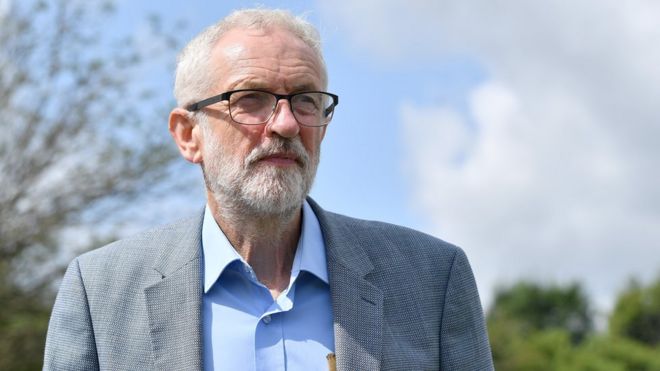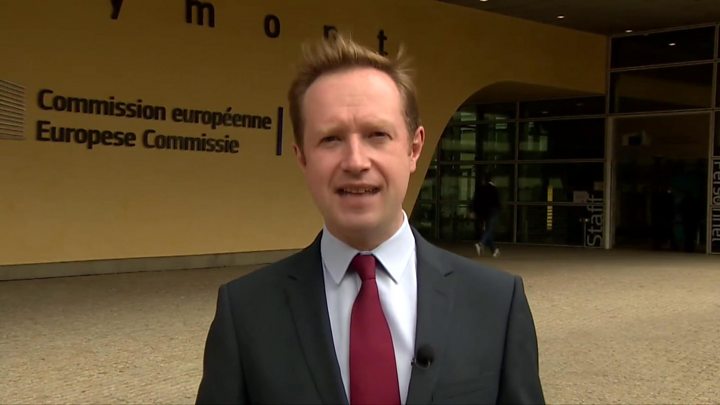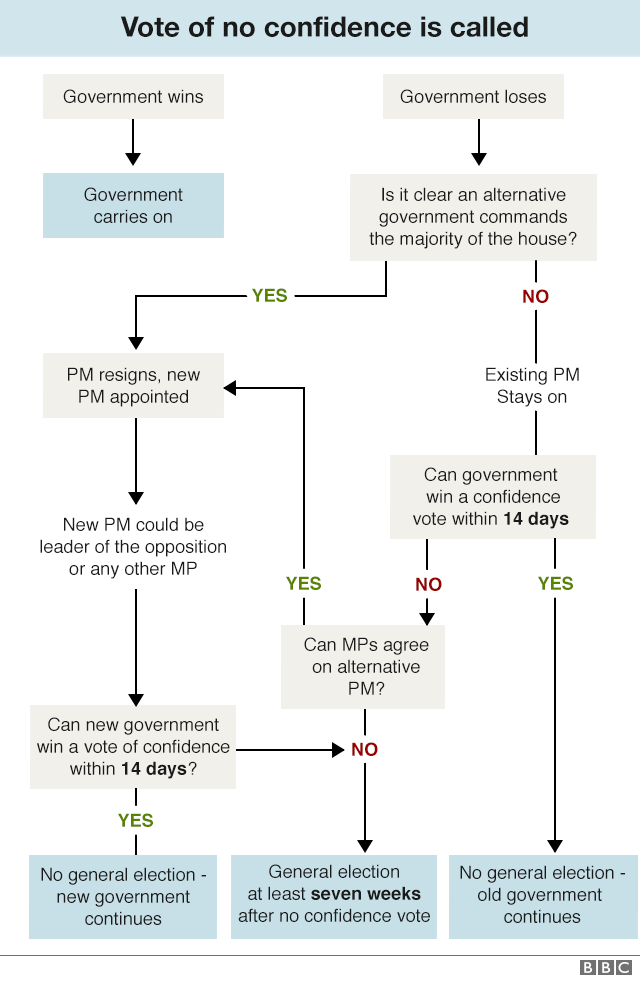15 August 2019

If he wins a no-confidence vote in the government, the Labour leader plans to delay Brexit, call a snap election and campaign for another referendum.
Mr Corbyn outlined his plan in a letter, saying the caretaker government would be "strictly time-limited".
Liberal Democrat leader Jo Swinson dismissed the plans as "nonsense".
Downing Street said Mr Corbyn would "overrule the referendum and wreck the economy" if he became prime minister.
Prime Minister Boris Johnson said he wants a deal with the European Union, but insists the UK must leave the bloc by 31 October "do or die".
Mr Corbyn said he would seek to call a no-confidence vote at the "earliest opportunity when we can be confident of success".
To defeat the government he would have to secure the backing of a majority of MPs.
- What is a vote of no confidence?
- Do MPs have the power to stop a no-deal Brexit?
- Ministers expect no-deal challenge next month
In his letter, Mr Corbyn wrote: "This government has no mandate for no-deal, and the 2016 EU referendum provided no mandate for no-deal.
"Following a successful vote of no confidence in the government, I would then, as Leader of the Opposition, seek the confidence of the House for a strictly time-limited temporary government with the aim of calling a general election, and securing the necessary extension of Article 50 to do so."
If he were to succeed in calling a general election - which would require the support of two-thirds of MPs - Labour would campaign for a second referendum with the option to remain in the EU, he said.

How have the party leaders responded?
- Ms Swinson outright rejected his proposals, saying: "Jeremy Corbyn is not the person who is going to be able to build an even temporary majority in the House of Commons for this task"
- Green MP Caroline Lucas welcomed Mr Corbyn's call for a vote of no confidence but insisted a referendum must be held before any general election
- Plaid Cymru's Westminster Leader, Liz Saville Roberts MP said she welcomed any attempt to stop no-deal but said it was "disappointing" that he would not commit to calling a referendum before an election
- The SNP's Westminster leader Ian Blackford said he was willing to meet with the Labour leader "at the earliest opportunity".
Also receiving the letter were Tory MPs Dominic Grieve, Sir Oliver Letwin and Dame Caroline Spelman, Green MP Caroline Lucas and Nick Boles, the independent MP who quit the Tory Party over Brexit.

In response to the letter, a No 10 spokesman said: "There is a clear choice: Either Jeremy Corbyn as prime minister who will overrule the referendum and wreck the economy, or Boris Johnson as prime minister who will respect the referendum and deliver more money for the NHS and more police on our streets.
"This government believes the people are the masters and votes should be respected. Jeremy Corbyn believes that the people are the servants and politicians can cancel public votes they don't like."
It comes after the prime minister accused MPs "who think they can block Brexit" of a "terrible collaboration" with the EU.
Mr Johnson said the EU had become less willing to compromise on a new deal with the UK because of the opposition to leaving in Parliament.
He said this increased the likelihood of the UK being "forced to leave with a no-deal" in October.

Mr Johnson wants the EU to ditch the Irish border backstop plan from his predecessor Theresa May's deal, which was rejected three times by Parliament.
But the EU has continued to insist the policy - intended to guarantee there will not be a hard border on the island of Ireland - must remain and cannot be changed.
What is a vote of no confidence?
If the government loses a no-confidence motion, it has 14 days to win the confidence of the House of Commons.
If Mr Johnson failed to win such a vote, then a general election would be called.
The prime minister has a working majority of just one in the House of Commons, with the backing of Northern Ireland's Democratic Unionist Party.

https://www.bbc.com/news/uk-politics-49352250